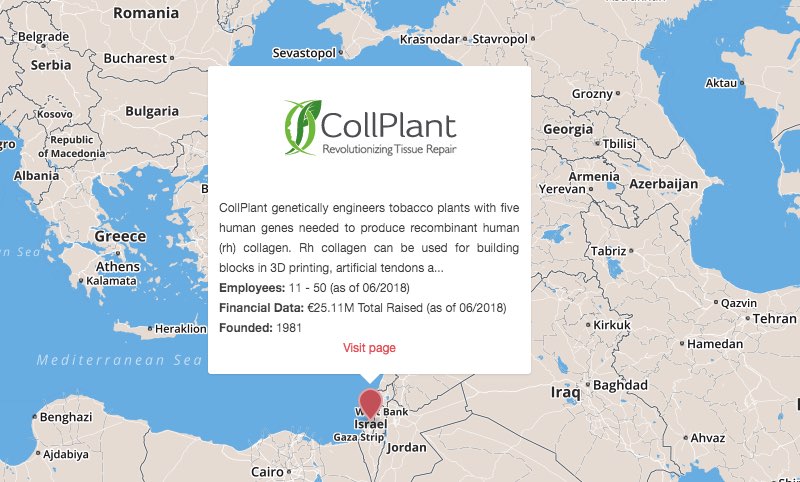This week we’re in Ness Ziona, Israel, visiting CollPlant, a biotech that engineers tobacco plants to produce collagen for a variety of uses, including 3D printing and artificial tendons.

Mission: CollPlant engineers tobacco plants to express five human genes, which enables the plants to produce recombinant human collagen. The material can be used in different forms, including gels, pastes and sponges, making it well suited to be used as a building block in 3D printing, artificial tendons, and transparent ophthalmic products. An additional advantage is that CollPlant’s recombinant collagen is free of infectious microbes, prions and allergens. For example, CollPlant’s collagen-based wound filler helps wounds heal faster and eliminates the risk of allergic reactions and exposure to animal pathogens.
What we think: CollPlant’s technology takes plant biotechnology beyond its usual applications. While genetically engineered plants have been used to produce biological drugs, it’s exciting to see that plants could also supply materials for use in bioprinting.
Common sources of collagen are rat tails and bovine and pig skin that are broken down by chemical or enzymatic hydrolysis, and CollPlant is one of several companies searching for alternatives. In the collagen space, Jellagen takes another interesting approach. The company uses jellyfish as a source of collagen to make 3D scaffolds for use in cell culture and tissue regeneration. Using plants to produce collagen, as CollPlant does, may be safer for medical applications since they have a lower risk of causing infections and avoids questionable hygienic conditions.
Image by verbaska/Shutterstock





